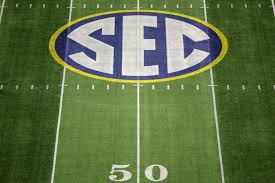When the UIGEA was passed in 2006 as an attachment to the Safe Port bill, I wrote an article expressing disgust that the government would sink so low as to attach a gambling bill to one designed to protect the country from terrorism. I received an email response from a politician (Democrat by the way); claiming that my article wasn’t well thought out because gambling and terrorism indeed were related. The politician stated that terrorists can use online gambling sites to launder money so the connection was reasonable.
That same logic was laid out in 2002 by Assistant Attorney General John Malcolm at a conference in England as well. These were his comments:
“A major concern that the Department of Justice has about online gambling is that Internet gambling businesses provide criminals with an easy and excellent vehicle for money laundering, due in large part to the volume, speed, and international reach of Internet transaction and the offshore locations of most Internet gambling sites, as well as the fact that the industry itself is already cash-intensive.
It is a fact that money launderers have to go to financial institutions either to conceal their illegal funds or recycle those funds back into the economy for their use. Because criminals are aware that banks have been subjected to greater scrutiny and regulation, not surprisingly, they have turned to other non-bank financial institutions, such as casinos, to launder their money. On-line casinos are a particularly inviting target because, in addition to using the gambling that casinos offer as a way to hide or transfer money, casinos offer a broad array of financial services to their customers, such as providing credit accounts, fund transmittal services, check cashing services, and currency exchange services.
Individuals wanting to launder ill-gotten gains through an on-line casino can do so in a variety of ways. For example, a customer could establish an account with a casino using illegally-derived proceeds, conduct a minimal amount of betting or engage in offsetting bets with an overseas confederate, and then request repayment from the casino, thereby providing a new "source" of the funds. If a gambler wants to transfer money to an inside source in the casino, who may be located in another country, he can just play til he loses the requisite amount. Similarly, if an insider wants to transfer money to the gambler, perhaps as payment for some illicit activity, he can rig the game so the bettor wins.
The anonymous nature of the Internet and the use of encryption makes it difficult to trace the transactions. The gambling business may also not maintain the transaction records, in which case tracing may be impossible. While regulators in the United States can visit physical casinos, observe their operations, and examine their books and records to ensure compliance with regulations, this is far more difficult, if not impossible, with virtual casinos.”
So in better words even if an online casino has no dealings with criminals or terrorists, the ability to do so makes online gambling a hideous activity. And since terrorism is such a severe threat to the safety of the country then attacking online gambling sites to prevent terrorism is justified to protect U.S. citizens.
Despite Malcolm’s comments, the DoJ never really charged anyone under the RICO act until 2006 when they laid money laundering charges against David Carruthers, Gary Kaplan and NETeller founders John Lefebvre and Stephen Lawrence. It was at that point that I spoke to Raymond Baker, an expert on transparency and a consultant to the government as to the logic behind levying these money laundering charges. I was expecting a response by Baker that the DoJ was reaching but instead found out that Baker was in complete agreement with the charges and if anything they didn’t go far enough.
"It's the ability to use any form of money laundering that can facilitate terrorists financing, which can parade as some other form of illicit proceeds. That's why I encourage Congress to bar all forms of illicit money coming from abroad. At least close the doors even if enforcement is problematic," Baker commented.
Baker also informed me that there are 200 classes of money laundering, but only 15 are deemed predicate offenses that would make it illegal for U.S. banks to accept money from foreign companies engaged in those activities. They include: drug trafficking, gambling, crimes of violence, official corruption, bank fraud and certain treaty violations. All other forms of money laundering can be handled by a bank without fear of retaliation but banks who process transactions for the 15 predicate offenses will be dealt with to the full extent of the law.
While I didn’t agree with Malcolm or Baker that gambling was a hotbed for money laundering they seemed generally sincere in their comments that they were worried about the safety of the country and that the DoJ would always pursue anyone dealing with terrorists to the utmost. And moreover they would ensure that safeguards were put in place at all possible terrorist money laundering “hot spots” to stop the activity.
I was thus quite surprised 2 years ago when I visited a casino in updstate New York and after introducing myself asked the manager what measures the casino had in place to ensure that terrorists weren’t using their facility for money laundering. The manager looked at me like I had 2 heads and said “well winners have to fill out a form if they win more than $10,000 and if anyone looks suspicious we’ll report it.” Speaking to people in Las Vegas it appears that the casinos there really haven’t put in any strict measures in recent years to ensure terrorists or drug dealers aren’t using the casinos for money laundering and it’s uncertain if the federal or state government ever asked casinos to beef up their scrutiny of casino players since 2001. In fact it appears the only gambling establishments that have gone out of their way to ensure money laundering doesn’t take place at their companies are the online casinos and sportsbooks. Almost every jurisdiction that hosts online gambling has strict regulations related to money laundering including low limits and withdrawal amounts, knowing the source of deposits and an in depth “know your customer” policy whereby they can close an account and report anyone who they suspect is acting illegally. In fact, the Isle of Man, a British protectorate which hosts numerous gambling sites has a whole section of regulations devoted to identifying money laundering and terrorist financing. It appears the same can’t be said for U.S. land based casinos who will only know about an individual if they register for a player’s card. And chances are terrorists and drug dealers aren’t too concerned about getting reward points for a free buffet dinner.
But the biggest proof that the U.S.’s comments about the dangers to the safety of Americans from money laundering was all hogwash occurred last week in an event that didn’t involve gambling. It was revealed that HSBC bank allowed drug cartels from Mexico to use its bank to launder billions of dollars of drug money through its branches. Moreover it failed to monitor almost $50 trillion of money moving across borders from possible terrorist locations and it accepted over $15 billion in cash from known terrorists in Saudi Arabia, Iran and Syria. And to make matters worse it seems that HSBC executives were aware of the transactions including over $7 billion sent from the HSBC subsidiary in Mexico to accounts in the U.S.
Given the comments by Malcolm and Baker one would naturally assume that these bankers who knowingly laundered drug and terrorist money (which were among 15 predicate money laundering classes) would be brought back to the U.S. and face treason and RICO charges for knowingly putting U.S. citizens in danger. In fact, one would assume that the trials of these managers would be made public and televised to let terrorists and other unscrupulous bankers know that they are being monitored closely. Instead HSBC is going to be given a hefty fine and David Bagley, the head of HSBC’s compliance division was asked to quit.
That being the case, it’s time for the U.S. government to admit that the UIGEA never had anything to do with preventing transactions for terrorists and criminals and moreover that the country isn’t all that concerned about money laundering. After all no American with half a brain would argue that Stephen Lawrence, who set up a company that processed transactions which allowed customers worldwide to play poker and bet on sports was more dangerous to the welfare of U.S. citizens than a bank that knowingly moved money for drug dealers and Saudi terrorists (the same ones by the way who were responsible for 9-11). Yet Lawrence received jail time while the HSBC management are apparently going to be set free.
So let’s call a spade a spade. The UIGEA was designed to protect U.S. land-based gambling companies and government coffers from competition, no more and no less. The events of the past week and the inaction of legislators to crack down at land based casinos are proof of that.
Contact Hartley via email at Hartley[at]osga[dot]com.
Read insights from Hartley Henderson every week here at OSGA and check out Hartley's RUMOR MILL!






































